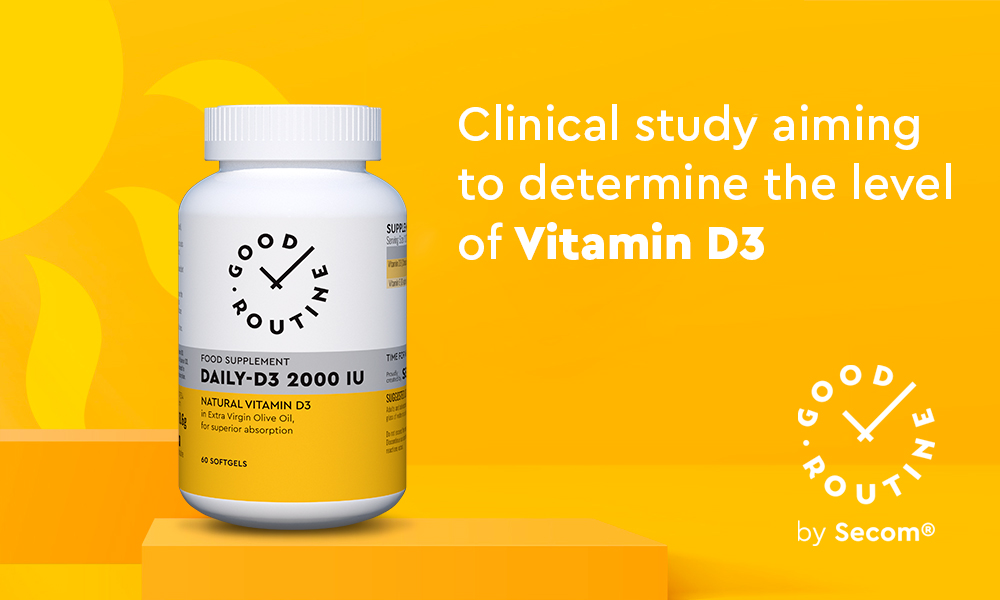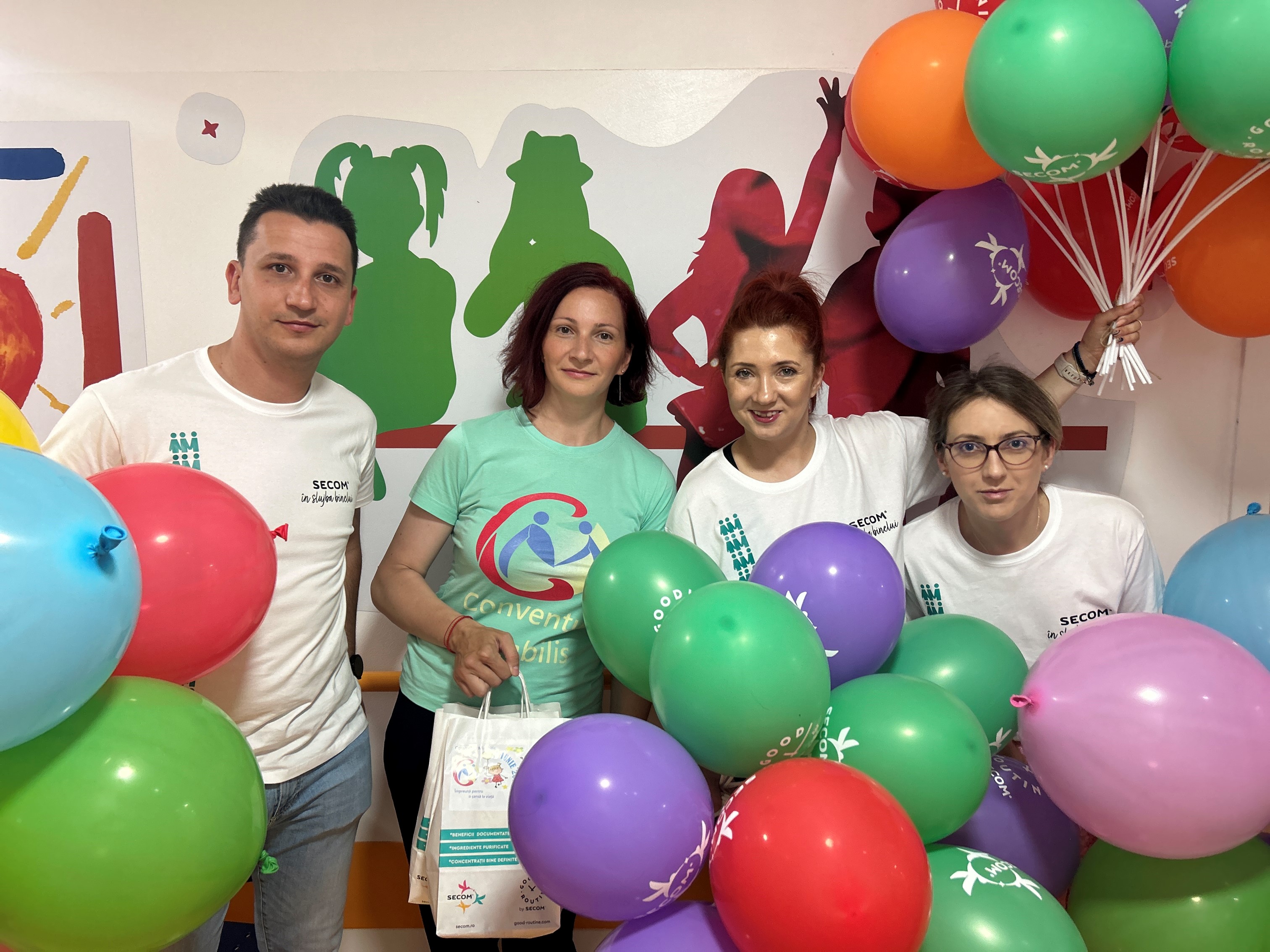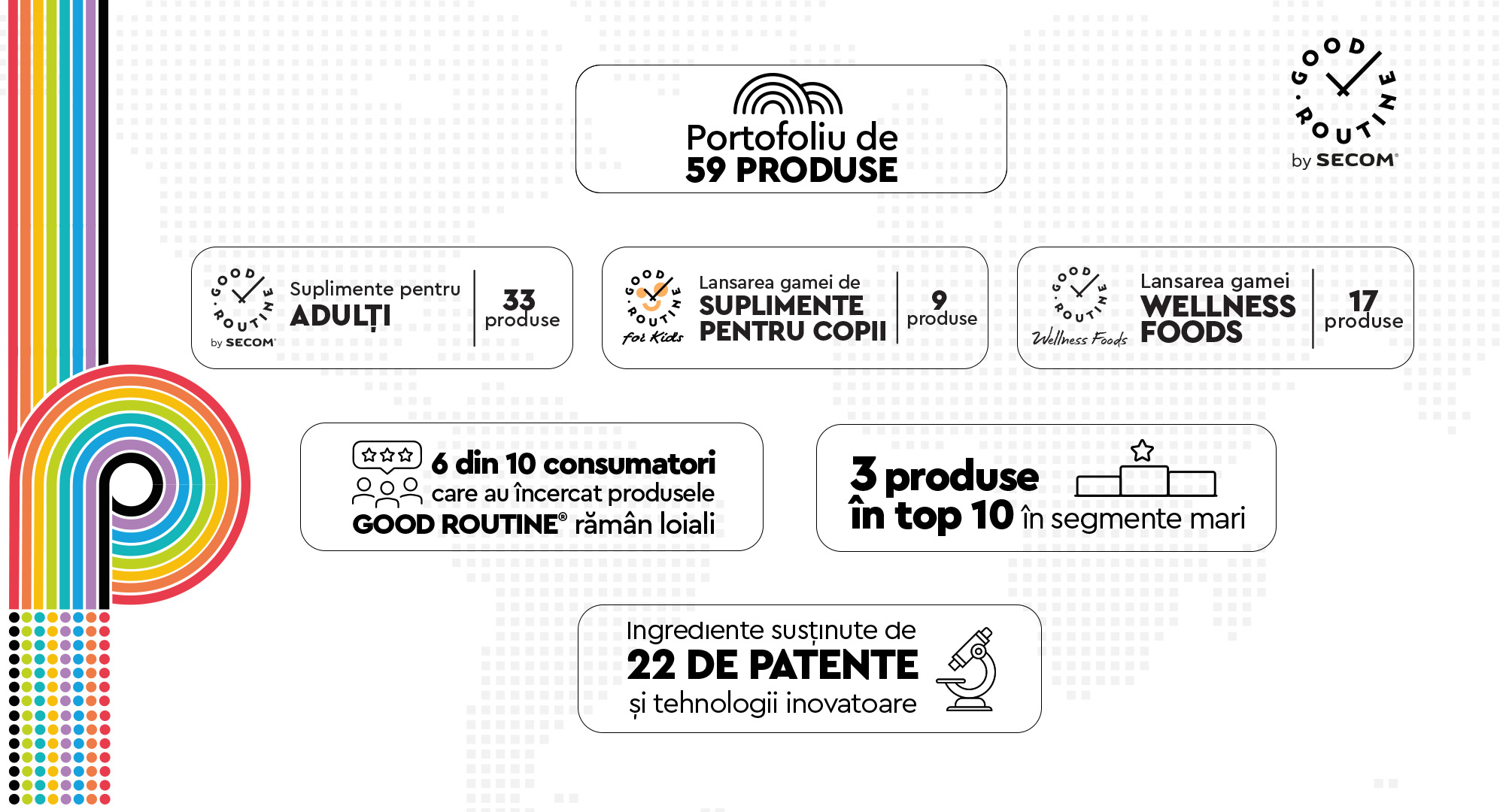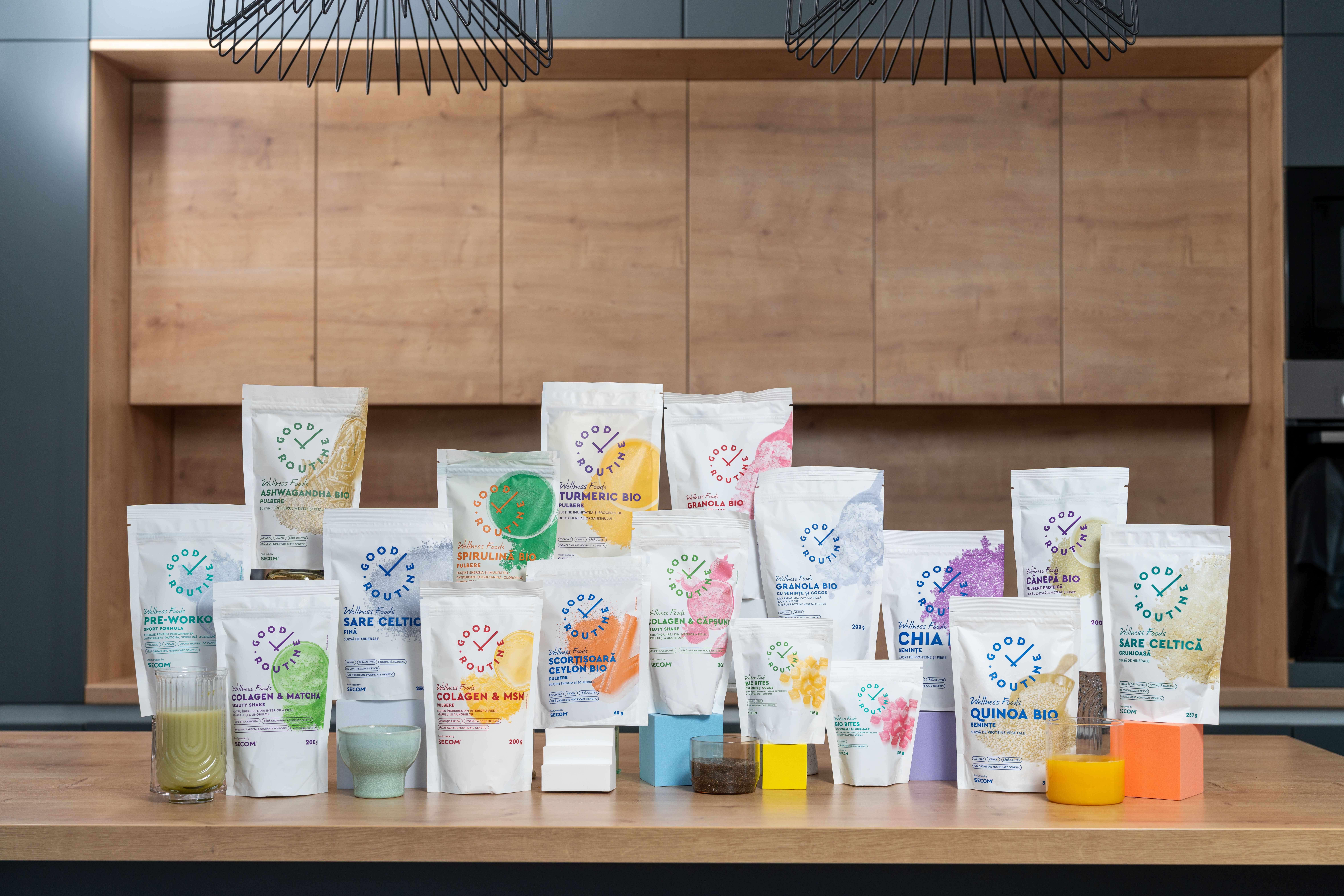Secom® Healthcare, the most recognized dietary supplement company in Romania, continues to advance its mission of supporting people not only through its portfolio of wellbeing products and solutions but also through active involvement in community life. In 2025, within the program Secom in the Service of Good, the company supported 29 social initiatives in health […]

The study aims to determine the level of vitamin D3 in the adult population in Romania and to test the effectiveness of Daily-D3 2000 IU in patients with deficiency
Good Routine®, Secom® Healthcare Group's proprietary brand, and the Regina Maria Healthcare Network are starting a nationwide clinical study on October 17th, 2022, to determine the vitamin D3 levels in the enrolled adult population and to test the effectiveness of Daily-D3 2000 IU administration in deficient patients.
"With this study, we want to draw attention to the important role of vitamin D3 in the body, as it is involved not only in the normal functioning of the bone system, but also in the immune, endocrine, cardiovascular and nervous systems. At the same time, we want to point out the dangers of vitamin D3 deficiency and the importance of prevention through regular testing of serum 25-OH-Vitamin D levels" says Dr. Dan Dimitriu, Medical Director Regina Maria Polyclinics.
The participants will be enrolled in the study at the recommendation of Regina Maria doctors, depending on the deficit revealed in recent laboratory tests (not older than 4 months). Specifically, patients aged 18 to 65 years diagnosed with less than (<) 30 ng/mL of serum 25-OH-vitamin D - the best indicator of vitamin D3 status in the body - will participate in the study.
Patients who meet the study criteria will receive two free bottles of Daily-D3 2000 IU from the Good Routine® range, to be taken for 90 days, one capsule/day, at mealtimes, or as recommended by their doctor.
"We are glad that we can make a real contribution to improving people's lives. Daily-D3 from Good Routine® and indeed the entire Secom® product portfolio, with globally certified and patented ingredients, promises the same high level of quality that our consumers have become used to. We are convinced that this study will help us prove not only the quality but also the effectiveness of our products", says Lucia Costea, Co-Founder and CEO Secom® Healthcare Group - creator of the Good Routine® brand.
Daily-D3 2000 IU from Good Routine® is a highly absorbable formula containing natural source vitamin D3 (lanolin) stabilized in an extra virgin olive oil base and with added vitamin E as an antioxidant. The product contains the metabolically active form of Vitamin D3, bio-identical to that synthesized by the human body in the skin, and with a concentration of 2000 IU Vitamin D3/capsule, it helps support normal vitamin D3 levels in the blood. Moreover, Daily-D3 from Good Routine® is easy to take in a single, small soft capsule every day.
During the study, the patients are not allowed to take other vitamin D preparations (vitamin D2 or D3) or allopathic medication (preparations containing vitamin D2 or D3, vitamin D analogues or other preparations that may influence serum 25-OH-Vitamin D levels). If an acute health event occurs that requires medication, the patient will be excluded from the study.
The duration of participation in the study will be approximately 3 months. Patients will return to the Regina Maria clinic after the 90 days for blood sampling and plasma 25-OH-vitamin D concentration measurement following administration of Daily-D3 2000 IU 60 soft capsules from Good Routine®.
The final stage of the study is the follow-up visit to the treating physician, where the serum 25-OH-vitamin D concentration result will be assessed in the specific medical context of each patient. As soon as the level has returned to normal, the treatment is stopped, and the serum concentration is monitored preventively every 6 months. If the serum concentration is still outside normal limits, the treating physician recommends further investigation and/or continued administration of vitamin D3 in the required concentrations until the deficiency is corrected.
More details about the role of vitamin D 3 in the body and how to enroll in the study are available on the Good Routine® website and in Regina Maria clinics.
About vitamin D3
Vitamin D 3 is naturally synthesized in the skin by adequate exposure to sunrays - this is why it is also called the 'sunshine' vitamin - but it is also found in certain animal foods (fatty fish, beef, milk, yoghurt, cheese) and can also be obtained through dietary supplements.
Vitamin D3, scientifically known as cholecalciferol, is an absolutely essential element for the health and proper functioning of the body, playing a key role in maintaining bone health. At the same time, recent studies show that a normal level of vitamin D 3 can provide significant benefits to the immune system as it helps to activate B cells and T cells (cells of the immune system), as well as to produce antimicrobial compounds in the event of infection.
Vitamin D3 deficiency can affect health and is responsible for obvious, painful, or even disabling bone disorders. The problem of vitamin D3 deficiency occurs and persists as a result of low vitamin D3 intake due to an imbalanced diet, but also through modern lifestyles that include reduced sun exposure.
The degree of severity of the deficiency is determined on the basis of the serum concentration of 25-OH-vitamin D, the best indicator of vitamin D3 status in the body. The optimal level of vitamin D3 translates into serum 25-OH-vitamin D concentrations between 30-50 ng/mL and the suboptimal level between 20-30 ng/mL. The test for 25-hydroxy-vitamin D (25-OH-D) levels is performed at the doctor's recommendation by taking a blood sample.
Mild vitamin D3 deficiency results in serum 25-OH-vitamin D concentrations between 10-20 ng/mL, moderate vitamin D3 deficiency is characterized by a serum 25-OH-vitamin D concentration between 5-10 ng/mL, and severe vitamin D3 deficiency occurs at a serum 25-OH-vitamin D concentration below 5 ng/mL.



